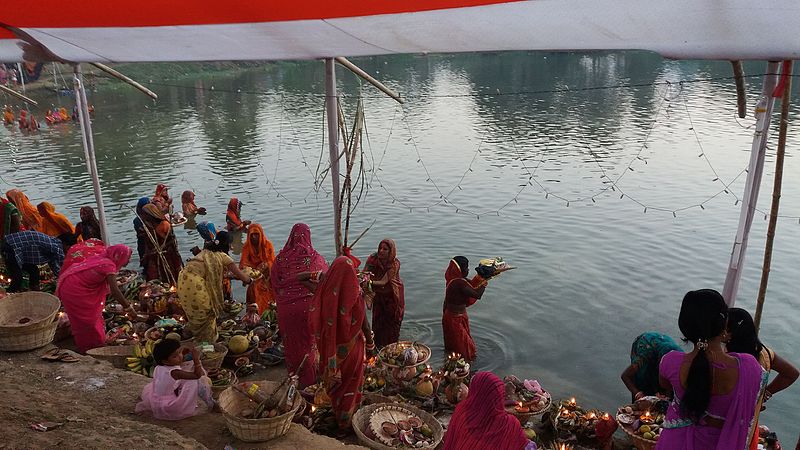

Mithila region including Mahottari is currently in the throes of the Chhath festival. Today, which is considered the third and main day of the festival, prayers and religious rituals, including puja and prasad, bathing in the Ganges, and fasting can be observed. In the evening, worshippers offer the first aghya to the setting sun by raising the dali with dessert dishes on the ghat decorated in the holy reservoir. This method is called ‘Sajhia Ghat’ and ‘Sajhuka Arakh’ in the dialect of Mithila. Mithila is currently seen preparing for ‘Sajhuka Arakh’.
Earlier, the first ritual of ‘Nahay-Khay’ and ‘Arbaarwine’ on the day of Kartik Shukla Chauthi last Friday is already completed. Likewise, the ‘Kharna’ ceremony was completed yesterday, Saturday, on the day of Panchami. The villages and towns of Mithila are now decorated like a bride on the occasion of the Chhath festival, which is celebrated with devotion, devotion, and devotion. Especially the ghats built in the reservoir are very attractive. The Chhath festival will be duly concluded after devotees offer aghraya to the rising sun on the day of Saptami on Monday. This ritual in the morning to conclude the fast is called ‘Bhoraka Arakh’ or ‘Paran’.
In order to celebrate this festival, taking a holy bath and vowing to fast is essential, but consuming rice, fish meat, lentils, garlic-onion, and food considered impure during fasting, People ‘Arbaarbine’ and ‘Bath-Eat’, and last Saturday, on the day of Panchami Tithi, they eat one chakamart alino (cooked in Sakhkhar) at night. By eating only kheer the ‘Kharna’ method is over.
A few decades ago, Chhath, which was considered to be the main festival of Mithila and Terai region, has now become a national festival in the context of Nepal. Now Chhath has been started as a celebration in various places including the capital of the country. Paka Maithil says that the importance of Chhath Ghat along with Ranipokhari in the capital has increased since the head of state (President) started visiting Chhath Ghat along with Ranipokhari in the past few years. Maithil intellectuals say that not only the Chhath festival but many other festivals are becoming common due to the cultural mixing between Pahad, Madhes, and Nepalis of different traditions.